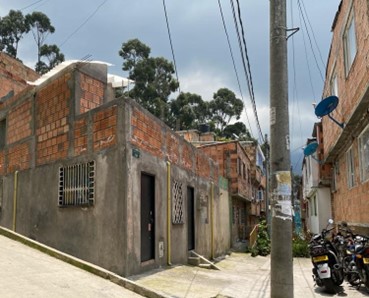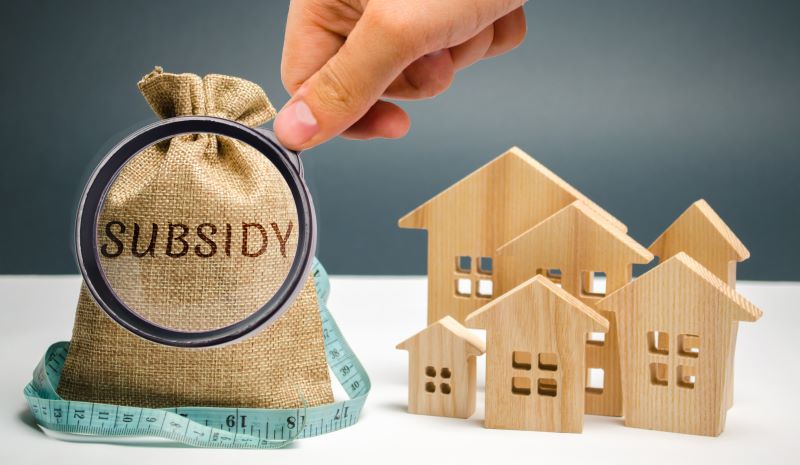
Source: Bogota, Colombia, 2023. World Bank
By: Vanessa Velasco, Urban Development Specialist; Sandra Murcia, Urban Development Consultant, Carlos Cortés, Housing Consultant
KGGTF Grant: Supporting green and resilient housing and urban development as part of the COVID-19 recovery in Colombia
TTL: Andre Herzog, Senior Urban Development Specialist
In developing regions like Latin America and the Caribbean, housing policies are evolving to bridge the qualitative gap in living conditions. Recognizing that many families need improved housing rather than new constructions, these policies are shifting focus.
Traditionally, the solution for inadequate housing was the mass production of new homes. This approach, however, needs to sufficiently address the needs of families in informal settlements, especially in the face of rising poverty and economic crises. As a result, governments are now pivoting towards home improvement programs. These initiatives enhance living conditions for vulnerable households and stimulate local economies.
Despite these efforts, the challenge remains vast, with nearly 43 million households still living in inadequate conditions. The World Bank's analysis shows that home improvement programs are a viable solution, offering a cost-effective, scalable, and impactful approach with lower environmental and social risks. The benefits are manifold, including reducing poverty, improving life quality, formalizing informal settlements, and boosting economic growth.
However, a key challenge is designing financial instruments accessible to the most vulnerable. These include home improvement credits and effective coordination with government subsidies.
Colombia's experience offers valuable insights. The country has shifted its focus since 2019 to support home improvement over new construction, addressing both urban and rural housing needs. Key to this policy is building trust with the private sector, encouraging community participation in projects, and revising subsidy values to match family needs and housing deficiencies.

A crucial aspect of this strategy is offering purpose-specific credit lines. Current financial products like mortgage, consumer, and microcredit often fail to meet the needs of vulnerable groups, primarily informal workers without banking access. Therefore, there's a pressing need for more accessible financial solutions, possibly through guarantees, credit origination subsidies, or interest rate subsidies.
This shift in housing policy reflects a broader understanding that improving existing homes can be more effective and sustainable than building new ones, especially in addressing the needs of low-income and vulnerable populations. Some advantages of this designated purpose line of credit for home improvement are:
1. Territorial universality in access to home improvement.
2. Benefits on the housing environment.
3. Reduction in fiscal pressure without high operating costs.
4. Possibility of complementing with self-construction and community management processes.
The World Bank, under the support of the Korea Green Growth Trust Fund, has accompanied this effort through technical assistance within the framework of the Resilient and Inclusive Housing Project. Technical documents have been developed with analysis and recommendations to meet the National Development Plan 2022-2026 goal of benefiting 400,000 households with home improvement interventions. Reflections are directed towards:
-
Democratization of credit as an opportunity to articulate government subsidies (national and subnational) with home improvement credits and design guarantees for households and social organizations.
-
Opportunities to enhance community participation through self-management and self-construction of housing.
-
Alternative housing programs include construction on one's own site, acquisition of used housing, and rental housing, among others.

Source: Bogota, Colombia, 2023. World Bank
The evolution of housing policies that allow addressing the deficit in all its dimensions continues to be challenging. On the path to achieving this purpose, the role of municipalities is transcendental for the development of alternative strategies, whether through guarantee funds, exemptions, incentives, support for a materials bank, or land authorization instruments. Likewise, considering aspects that are more relevant, such as the participation of the private sector, is critical, for example, in generating credit products for small builders.
Moving forward, the initiative will focus on three core areas. First, the continued support for democratizing credit will ensure that financial solutions are more accessible to vulnerable groups, facilitating necessary home improvements. Second, ongoing collaboration with the national government and subsequent subnational governments is crucial to scale and tailor housing policies effectively. Lastly, the program will strengthen initiatives like housing rental programs, broadening its scope to address diverse housing needs. This strategic approach emphasizes the commitment to enhancing living conditions and promoting sustainable urban development in Colombia.
This program is supported by the Korea Green Growth Trust Fund (KGGTF) Grant: Supporting green and resilient housing and urban development as part of the COVID-19 recovery in Colombia.
